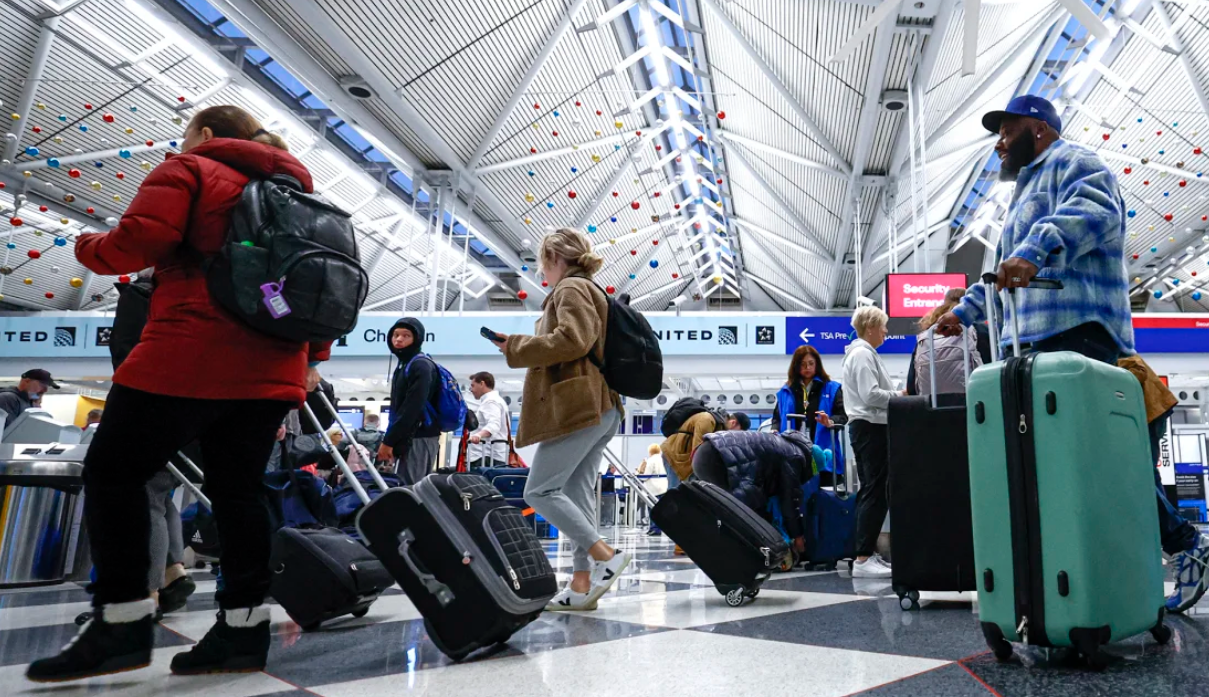The global airline industry is projected to generate over $1 trillion in revenue next year, with passenger numbers expected to reach a record high of 5 billion, according to the International Air Transport Association (IATA). The IATA also forecasts a significant rise in the average profit per passenger, which is expected to reach around $7, up from $2.25 just 18 months ago. This year, the per-passenger profit is anticipated to be $6.40.
These figures highlight a remarkable recovery for an industry that suffered substantial losses due to the pandemic, recording nearly $187 billion in deficits over three consecutive years from 2020 to 2022.
The strong demand for travel, which surged after the easing of Covid-related restrictions, has quickly boosted the airline industry’s profits, enabling some airlines to raise ticket prices.
Middle Eastern airlines are expected to lead in profitability next year, with an anticipated $24 profit per passenger, followed by U.S. airlines at $12 and European carriers at $9. Airlines in Africa, Latin America, and the Asia-Pacific region are predicted to be less profitable than the global average.
IATA Director General Willie Walsh called the projected revenue figure “great news,” but noted that overall net profitability across the industry would remain slim, at $36.6 billion. He pointed out that this profit is hindered by delays in aircraft deliveries from major manufacturers like Airbus and Boeing.
IATA Director General Willie Walsh highlighted that supply chain disruptions are significantly impacting airlines’ costs, with no clear end to the problem. A persistent shortage of aircraft has led to the extended use of older, less fuel-efficient planes, which raises operating and maintenance costs and has a negative environmental impact.
Global conflicts are also contributing to higher costs, as airspace closures force airlines to take longer routes and increase the likelihood of delays, with less airspace available for an increasing number of flights.
Walsh also warned that changes in U.S. government leadership could hinder the airline industry’s efforts to achieve net-zero carbon emissions by 2050. He expressed concern that the benefits the industry experienced under the Biden administration, such as tax incentives for sustainable aviation fuel production, might not continue under a potential Trump administration.
Scientists have emphasized that to limit global warming to 1.5 degrees Celsius, worldwide greenhouse gas emissions must reach net-zero by 2050. Aviation contributes 2.5% of global carbon emissions, according to Our World in Data.
In other news, Alaska Air Group, which owns Alaska Airlines and Hawaiian Airlines, announced that it will launch its first-ever flights from Seattle to Tokyo and Seoul next year. Following its acquisition of Hawaiian’s parent company in September, the group is aiming to generate an additional $1 billion in profit by 2027.














